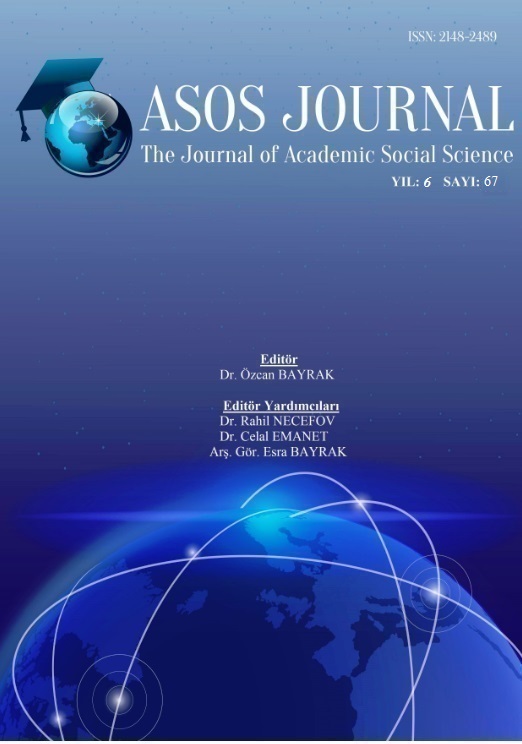Author :
Abstract
Bu araştırma, hemşirelerinin ekip çalışmasına yönelik tutumları değerlendirmek amacıyla tanımlayıcı olarak planlanmıştır. Araştırmanın verileri, Eskişehir il merkezindeki, bir üniversite hastanesinde çalışan 230 hemşireden elde edilmiştir. Veriler, araştırmacı tarafından oluşturulan Kişisel Bilgi Formu ile 28 madde ve 5 alt boyuttan oluşan Ekip Çalışması Tutumları Ölçeği (EÇTÖ) ile toplanmıştır. Araştırmaya katılan hemşirelerin çoğunun kadın, evli ve lisans mezunu olduğu, yaş ortalamasının 29,87 ± 6,81 ve meslekte çalışma yılı ortalamasının 8,20± 6,68 olduğu belirlenmiştir. Araştırmanın bulgularından, ölçek toplam puanının ortalamanın üzerinde olduğu (111,53±11,47), alt boyut ortalamalarının ise sırasıyla; liderlik (25,28±2,98); durum izleme (24,72±2,88); ekip yapısı (24,04±2,81), iletişim (20,83±2,23), karşılıklı destek (16,67±5,14) olarak dağılım gösterdiği saptanmıştır. Ölçek genel ve alt boyut ortalamalarının demografik özelliklerle karşılaştırılmasında; sadece temel eğitim sırasında ekip çalışması ile ilgili ders alma ve temel eğitim sonrasında ekip çalışması ile ilgili eğitim alma değişkenleri aralarında istatistiksel açıdan anlamlı bir farklılık olduğu saptanmış; diğer demografik ve çalışma yaşamına ait özellikler arasında istatistiksel açıdan anlamlı bir ilişkinin olmadığı saptanmıştır. Araştırmaya katılan hemşirelerin ekip çalışmasına ilişkin tutumlarının iyi düzeyde olduğu (111,53±11,47), alt boyutlarda ise; liderlik (25,28±2,98); durum izleme (24,72±2,88); ekip yapısı (24,04±2,81), iletişim (20,83±2,23) alt boyutlarında ekip çalışmasına ilişkin puanlarının ortalamanın üzerinde, karşılıklı destek alt boyutu puan ortalamasının ise düşük (16,67±5,14) olduğu belirlenmiştir.
Keywords
Abstract
This descriptive study has been designed to evaluate the attitudes of nurses towards team work. The data has been collected from 230 nurses working in a university hospital in Eskisehir through a Personal Identification Form developed by the researcher and the Teamwork Attitudes Questionnaire (T-TAQ) composed of 28 items and 5 sub-dimensions. It has been identified that most of the nurses within the study are female, married and have bachelor’s degree while the mean age of the group is 29,87 ± 6,81 and the average working year is 8,20± 6,68. It has been observed as the findings of the study that the total score of the questionnaire is above average (111,53±11,47) while the sub-dimension average is leadership (25,28±2,98); condition monitoring (24,72±2,88); team structure (24,04±2,81), communication (20,83±2,23) and mutual support (16,67±5,14), respectively. When the average values of the general and sub-dimensions have been compared with demographic features, it has been identified that there is a statistical significant difference only between the variables of taking course about teamwork during basic training and taking course about teamwork after basic training while there has been found no statistical significant correlation between other demographic features and traits about working life. It has also been observed that the attitudes of nurses participating to the study towards teamwork is at good level (111,53±11,47) while in the sub-dimensions, the scores of leadership (25,28±2,98); condition monitoring (24,72±2,88); team structure (24,04±2,81), and communication (20,83±2,23) are above average. It has been found out that the mean of mutual support is lower (16,67±5,14).





